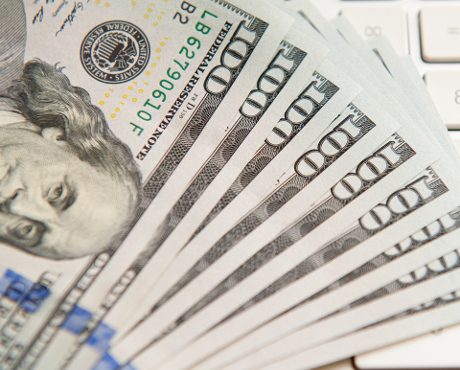1 Dividend Stock to Own Forever?
Today I’m going to share one dividend stock that you could literally buy and hold forever.
Several billionaires own stakes in this business. Some of the world’s smartest investors—including Eric Sprott, Ken Griffin, and Russell Lucas—have been building up positions.
Most people, though, don’t even know this company exists. My advice: own it, stick the certificates in a drawer, and collect the dividend checks for decades to come.
Let me explain.
As regular readers know, I’m a big fan of a group of companies I like to call my “forever assets.”
Put simply, this is the group of stocks you can buy today and hold for the rest of your life. They’re wonderful, legacy-type assets that have been creating wealth not just for weeks or years, but for generations.
In other words, they’re timeless. When you own them, you don’t have to worry about bear markets or stock market crashes. These businesses just carry on, paying out dividends to shareholders. This sort of “worry-free” income is exactly why the world’s most connected people have owned shares of these stocks for decades.
Case in point: Brookfield Infrastructure Partners L.P. (NYSE:BIP) stock.
As you could probably tell by the name, Brookfield owns a collection infrastructure assets, including ports, railroads, and cell phone towers. The partnership owns toll roads in Brazil, railroads in Australia, and utilities in Texas. And, if you like collecting globs of dividend income, there might be no better business in the world.
Brookfield’s cash flows are steady, like bond coupons. Because the business provides the essentials of everyday life, profits are relatively immune to recessions. Unitholders don’t have to worry too much about things like flash crashes or higher interest rates.
And while these assets require a big upfront investment, they’re not that costly to maintain. Once in place, the properties just sit there. Maintenance costs are usually only a small percentage of revenues; the rest can be paid out to owners.
Best of all, there’s little competition. Most of the time, Brookfield is the only business in town. As a result, they’re usually able to raise prices every year like clockwork.
And even if you wanted to compete, chances are you couldn’t do it. Local governments are hesitant to grant the needed right-of-way for construction. Also, in most cases, it just doesn’t make sense to have two utilities serving the same market.
For these reasons, long-time unitholders have been well rewarded. Since I started recommending Brookfield to my followers in 2014, shares have delivered a 60% total return. And, along the way, the stock has paid about $4.22 per share in dividends, based on my original purchase price.
But I think this dividend stock still has lots of upside left. Traditionally, infrastructure was the government’s business. In recent times, however, cash-strapped politicians are turning to the private sector to fund new projects.
Brookfield is stepping up to the challenge, for a price. The partnership has a $2.3-billion backlog of growth projects at the end of the fourth quarter. Given that the firm has a market cap of just $8.0 billion, such a project backlog is substantial. (Source: “Corporate Profile,” Brookfield Infrastructure Partners L.P., last accessed January 6, 2017)
And, as you would expect from ownership in a basket of monopolies, these holdings throw off solid cash flows. In 2015, the partnership earned funds from operations (FFO) per unit of $2.39. Over the next five years, executives expect the FFO per share to grow by six to nine percent per year.
Most of that money will be passed onto unitholders. Right now, Brookfield pays $0.39 per unit each quarter. That comes out to a total yield of about 4.5%.
That payout is likely to continue to grow in line with earnings. Since going public in 2008, management has more than doubled that annual distribution. Executives are targeting a dividend growth rate of eight percent per year.
The $8.0-Billion Legacy Asset
Of course, Brookfield is no slam dunk. Higher interest rates would also knock the wind out of units. There is also the potential for cost overruns in the construction of new projects.
This company, though, checks off all of the boxes of a true forever asset: a wonderful business with a monopoly position, irreplaceable properties, and a steady, growing dividend. I can only think of a few other public companies with such a collection of monopolistic assets anywhere else in the world. For these reasons, this is one dividend stock to own for the next 100 years.
